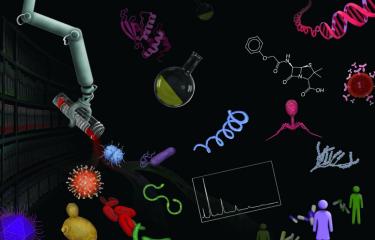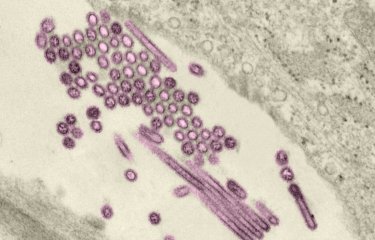As a leading biomedical research center in many fields of health, the Institut Pasteur also has an education center which contributes to the dissemination of scientific and medical knowledge. Some of the Education Center's course offerings are digital, including three MOOCs whose registration period is currently underway, on the topics of medical entomology, epidemiology and neuroscience. Read on for details.
MOOC: Medical entomology - Insect vectors and transmission of pathogens
The MOOC Medical entomology focuses on the insects and arthropods that impact human health as well as the associated diseases, such as malaria, dengue, Zika, Lyme borreliosis, Chagas disease…
This MOOC will focus on mosquitoes, other hematophagous insects and ticks, arbovirosis and parasitic diseases, like new approaches for a better control. The videos are in English subtitled in French and in English.
This MOOC is organized in 6 weeks of 6 sequences. Each sequence is composed of a 10 minutes video and a multiple choice test to help students check their understanding. The Mooc is dedicated to students in biological or medical sciences, public health advisors (human and animal health), and stakeholders in vector control.
MOOC : Concepts and methods in epidemiology
Launched for the first time in 2014 by Prof. Arnaud Fontanet (Pasteur/Cnam), MOOC Epidem will start on February 20, 2017. The MOOC will be open to registration on FUN Platform until April 2, 2017.
For 6 weeks, this MOOC will cover key principles of descriptive and analytical epidemiology. The course will also address the main principles of causality and the levels of proof required today to establish the link between risk factors and diseases. At the end of this MOOC, the students will have the keys to interpret scientific articles dealing with these subjects, and will be prepared to pursue specialized teaching in epidemiology and public health.
Since 2016, learners have the opportunity to get an authenticated certificate if they successfully pass the final exam.
Neuroscience MOOC "From neuron to behavior"
On January 20, the "From neuron to behavior" MOOC, launched in 2016 under the leadership of Pierre-Marie Lledo, Director of the Institut Pasteur's Department of Neuroscience, and featuring almost 30 speakers, was opened up to all Institut Pasteur scientists, who can now register via the Institut Pasteur platform.
Understanding how the brain works is one of the greatest remaining mysteries that challenge mankind. Modern neuroscience is making remarkable progress in the understanding of the brain, which could constitute a full-fledged scientific revolution. Brain functions determine who we are by governing our thoughts and actions. The brain processes information through the concerted activity of many neurons, which communicate with each other through contacts we call synapses organized in highly dynamic networks. In this course, we are taking a bottom-up approach, starting from molecules to end with behaviors and mental disorders. It will describe how the brain develops and then functions to both perceive the external world and learn from our experiences. Thus, this course aims for a causal and mechanistic explanation of brain functions that depend on two key players: the external world of course, but also our internal states, including microbiota.
This course is aimed at undergraduate students, PhD/MD students, teachers, or researchers. A good scientific background is recommended. Each week of the course consists of four video-lectures, each lasting from 10 to 15 minutes.
The course will explore the following topics:
- Structure and function of the fundamental building blocks of the mammalian brain.
- Neural stem cell and how they could give rise to organized brain circuits.
- Interconnection between neural cells and how groups of neurons work together.
- Neuronal disorders as consequences of brain circuit dysfunctions.
- Embodied interaction with both the external world and the internal state.





